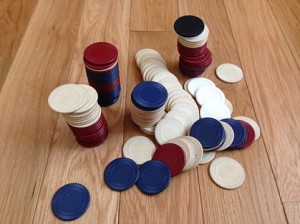
The Federal Reserve recently voted to raise the benchmark fed-funds target rate by a quarter percent, to a range of 1.5% to 1.75%. They also indicated rates would probably be raised two to three times this year and three times next year. This is bad news for bond prices.
Why? Imagine you own a $1,000 bond with a 2% coupon. This means you receive interest payments of $20 per year. As interest rates go up, you can now buy a $1,000 bond with a 3% coupon, which means you would receive $30 per year for that same cash outlay. If someone can get $30 in interest by paying $1,000, they won’t be willing to receive only $20 in interest for their $1,000 investment. Therefore, the value of the first bond goes down.
How much does it go down? It depends on duration, or the time remaining until you receive all your interest payments and principal. Longer term 30-year bonds will lose more value than medium term 10-year bonds, which in turn will lose more value than shorter term 2-year bonds. That’s why in a rising interest rate environment, such as we are in now, it’s better to own shorter-term bonds than longer-term bonds.
As I wrote in Money Grab:
Interest rates and bond prices were like two ends of a seesaw. When rates went up, bond prices went down. When rates came down, bond prices went up. For the past thirty years, interest rates had been coming down, which meant bond prices had been going up. Financial advisors who had stuffed their clients’ portfolios years ago with long term bonds looked like geniuses.
If you own individual bonds and hold them to maturity, then the interest rate changes won’t impact your returns. The bond you bought for $1,000 with a 2% coupon will continue to pay you $20 per year, which is what you signed up for, and when it matures you will receive the $1,000 principal. But you miss the opportunity to invest that $1,000 in something with a higher return.
And if you try to sell that bond before it matures, you will receive less than $1,000, which means you take a loss on your principal investment.
If you invest in a bond fund, you will probably see the value of that fund go down as interest rates go up, because bond funds typically don’t hold all their bonds until maturity. Funds buy and sell bonds to improve their returns, which will cause the principal value of the fund to fluctuate.
Bonds provide income and diversification to your portfolio. But they are not risk-free investments, and you can lose money on them if you sell when interest rates are going up. You can reduce this risk by buying shorter-term bonds and holding them until maturity.